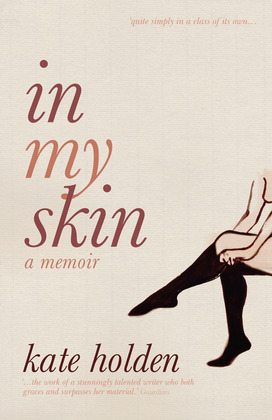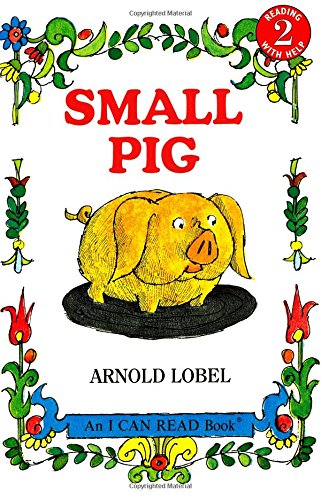 Reading Kate Holden’s In My Skin and The Romantic together is a little unsettling. It almost feels as though a third part in the trilogy is missing: the story where the protagonist finds peace. The character arc from one book to another is quite powerful, taking Holden through a series of major changes – some terrifying and some quite wonderful Both books are confronting in very different ways.
Reading Kate Holden’s In My Skin and The Romantic together is a little unsettling. It almost feels as though a third part in the trilogy is missing: the story where the protagonist finds peace. The character arc from one book to another is quite powerful, taking Holden through a series of major changes – some terrifying and some quite wonderful Both books are confronting in very different ways.
A review of The Fugue by Gint Aras
 The Fugue is thus a novel of paradoxes. Inspired by a notion of the harmonious and contrapuntal progression of musical voices through time, it is equally a story about being stuck in someone else’s nightmare. An epic saga of family lives and losses, it is also a chamber piece with surprisingly few characters. Located squarely in Cicero, its moral implications ripple outwards to cover the entire world. I could not help remembering that faire fugue, in French, means to run away.
The Fugue is thus a novel of paradoxes. Inspired by a notion of the harmonious and contrapuntal progression of musical voices through time, it is equally a story about being stuck in someone else’s nightmare. An epic saga of family lives and losses, it is also a chamber piece with surprisingly few characters. Located squarely in Cicero, its moral implications ripple outwards to cover the entire world. I could not help remembering that faire fugue, in French, means to run away.
A review of Central Station by Lavie Tidhar

With this new novel, the cosmopolitan Tidhar turns away from the noir that drove his award-winning Osama, The Violent Century, and A Man Lies Dreaming. Those who appreciated the Dashiell Hammett/Raymond Chandler scrubbed into a pulpy Po-Mo alternative reality resembling a lighthearted Phillip K. Dick will still find that in Central Station through Achimwene—a bookseller in an age when books are antiquated commodities—whose life “had been a Romance, perhaps, of sorts. But now it became a Mystery” when he meets and falls in love with the data/memory vampire (alternately called “strigoi” and “shambleau”) Carmel.
Rebecca Starford on Bad Behaviour
In this special Newcastle Writers Festival episode, Rebecca Starford, the author of Bad Behaviour, reads from and talks about her memoir and how it came about, her “characters” and why she needed to revisit them, about the complex and fuzzy…
A review of Go Set a Watchman by Harper Lee
 Watchman is a coming-of-age story about 26-year-old Jean Louise who is racially tolerant and non-apologetic towards Maycomb’s prevalent bigotry. Upon discovering that her closest friends and family have adopted the very social standards that Atticus fought against in Mockingbird, Jean Louise must find her own moral code and identity. “Prejudice, a dirty word, and faith, a clean one, have something in common: they both begin where reason ends.”
Watchman is a coming-of-age story about 26-year-old Jean Louise who is racially tolerant and non-apologetic towards Maycomb’s prevalent bigotry. Upon discovering that her closest friends and family have adopted the very social standards that Atticus fought against in Mockingbird, Jean Louise must find her own moral code and identity. “Prejudice, a dirty word, and faith, a clean one, have something in common: they both begin where reason ends.”
A review of That Fry Boy by James Fry

A review of We’re Going to Run this City by Stefan Epp-Koop
 “There is something about the audacity, length and size of the General Strike”, writes author Stefan Epp-Koop, “that continues to capture public and scholarly attentions.” The Strike, he says, was not the end of radical politics in Winnipeg, but was “near the beginning.” While focusing on one city’s municipal politics, his work is relevant to the larger history of the left in the 20th century
“There is something about the audacity, length and size of the General Strike”, writes author Stefan Epp-Koop, “that continues to capture public and scholarly attentions.” The Strike, he says, was not the end of radical politics in Winnipeg, but was “near the beginning.” While focusing on one city’s municipal politics, his work is relevant to the larger history of the left in the 20th century
A review of Small Pig by Arnold Lobel
 Jam-packed with easy-to-read vocabulary and child pleasing, characteristic Lobel illustrations Small Pig has proven to be a long time, much loved, favorite in my K-1 classrooms. Ludicrousness, exhilarating action, and short, simple, child friendly sentences and low key illustrations are a delight for emergent readers, as well as those who enjoy reading Lobel’s books to them.
Jam-packed with easy-to-read vocabulary and child pleasing, characteristic Lobel illustrations Small Pig has proven to be a long time, much loved, favorite in my K-1 classrooms. Ludicrousness, exhilarating action, and short, simple, child friendly sentences and low key illustrations are a delight for emergent readers, as well as those who enjoy reading Lobel’s books to them.
A review of Apostate Englishman by Albert Braz
 Archie Belaney “went native”, in an era when “the cowboys always won.” In the early 20th century, American First Nations people were still regarded as savages with a lust for killing wild animals. On one occasion, in an upscale Toronto hotel while on a lecture tour, Grey Owl was taunted for being Indian. He harmed no one with his deception. Did writing about his own experiences in the forest with animals constitute cultural appropriation? Braz says no.
Archie Belaney “went native”, in an era when “the cowboys always won.” In the early 20th century, American First Nations people were still regarded as savages with a lust for killing wild animals. On one occasion, in an upscale Toronto hotel while on a lecture tour, Grey Owl was taunted for being Indian. He harmed no one with his deception. Did writing about his own experiences in the forest with animals constitute cultural appropriation? Braz says no.
Mark Flanagan on David Foster Wallace’s Infinite Jest and Infinite Winter
Mark Flanagan is the founder and editor of Run Spot Run, and the instigator behind Infinite Winter, an online book club of hundreds of readers who have banded together to jointly read David Foster Wallace’s Infinite Jest in celebration of the…